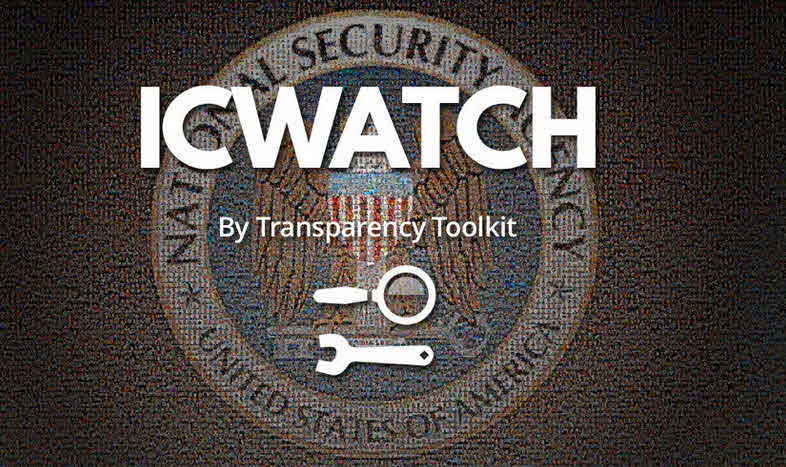Every security officer needs to watch this video. At a conference last week in Germany, the founder of Transparency Toolkit gave a presentation on how he developed a program and website to collect data from LinkedIn of US government employees and contractors who self-identified that they work or worked on intelligence and surveillance-related projects. This database makes life a lot easier for foreign intelligence officers. Security officers need to make employees in their organization or company aware that this tool is out there and the type of information that is being collected. All of it is open source information but when each individual piece is pulled together, it reveals a lot. Watch this video to understand how this tool works and then let your people know about this:
Here is what the Transparency Toolkit website said on May 6, 2015:
Today Transparency Toolkit is releasing ICWATCH, a collection of 27,094 resumes of people working in the intelligence community. [DICE NOTE: Now it’s up to 137,981] These resumes include many details about the names and functions of secret surveillance programs, including previously unknown secret codewords. We are releasing these resumes in searchable form with the hopes that people can use them to better understand mass surveillance programs and research trends in the intelligence community. The ICWATCH data was collected from LinkedIn public profiles using search terms like known codewords, intelligence agencies and departments, intelligence contractors, and industry terms. We then built search software, called LookingGlass, to make it easy to browse this dataset. Both LookingGlass and the ICWATCH data are available on Github.
From the Conference website:
WATCHING THE WATCHERS: BUILDING A SOUSVEILLANCE STATE
Kurzthese: Secret surveillance programs have metadata too. The same people and companies that operate secret surveillance programs also publish details about their work on the open internet. We can use this data to watch the watchers.
Beschreibung: “Proficient in Microsoft Word and Xkeyscore” and similar phrases are surprisingly common on LinkedIn profiles. NSA contractors, military, and others involved in the surveillance state post seemingly coded and harmless details about their work in job listings, social media, and other open websites. But this information provides useful metadata that can be used to understand the function of secret programs and map the surveillance state. Transparency Toolkit has been building open source tools to collect and analyze this open source intelligence. This talk discusses how we can use these data sources and tools to build a sousveillance state that holds the surveillance state accountable.
You betcha the Russians know about this:
Watching the watchers: Searchable database of NSA contractors revealed (RT)
Resumes and details of 27,000 NSA contractors have been put together in a searchable database by Transparency Toolkit. Researchers used LinkedIn and similar websites where the spy agency employees were openly sharing about their jobs.
The online database, called “ICWATCH,” was unveiled at a conference in Berlin this week by Transparency Toolkit founder M.C. McGrath.
“My goal with this is to provide a face to the surveillance state and a better mechanism for researching and understanding these programs,” McGrath told a crowd on Wednesday at the 15th installment of re:publica, the self-described biggest conference on internet and society in all of Europe. . .
. . . By comparing shared skill sets and program names mentioned by analysts, Transparency Toolkit has already been able to draw inferences concerning the apparent NSA programs mentioned in those profiles but not anywhere else. McGrath said that a lot of the code words he came across were absent from previously published NSA documents, but details can be derived by looking for links involving other analysts and programs. ICWATCH offers users the ability to filter by key word, location, area, industry and other factors, ideally allowing any open source analyst to try and make the most of a database. This might very well help uncloak the NSA to a new degree. . . (read more)











